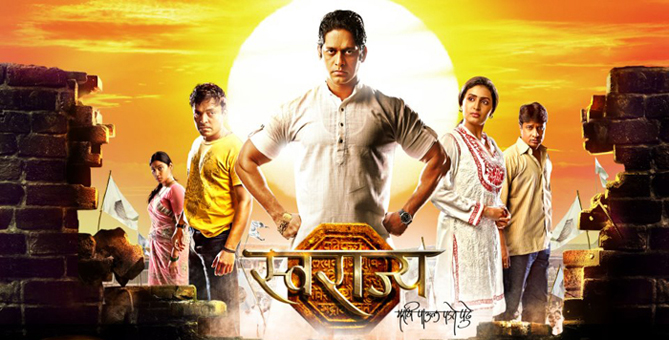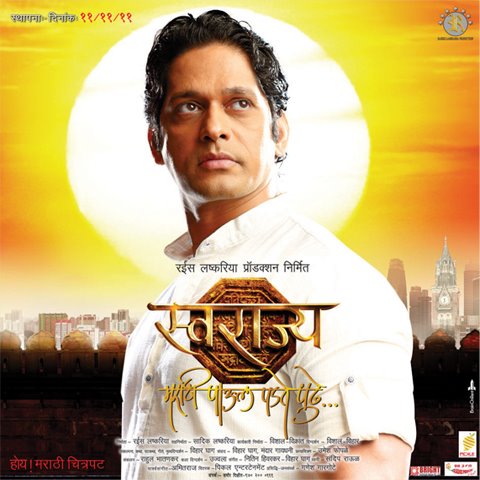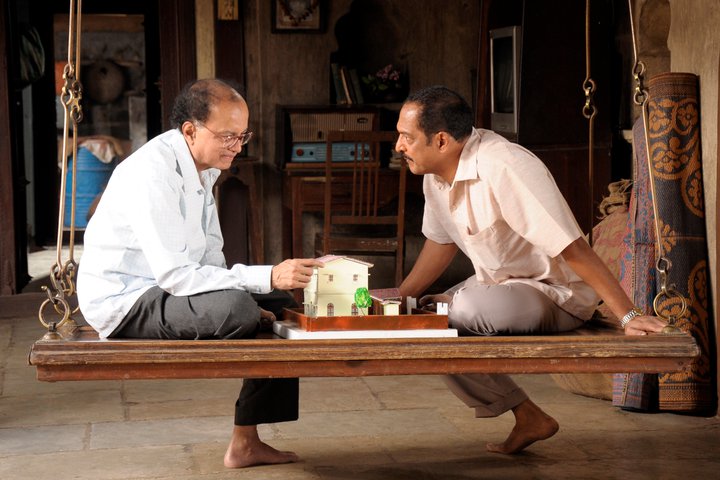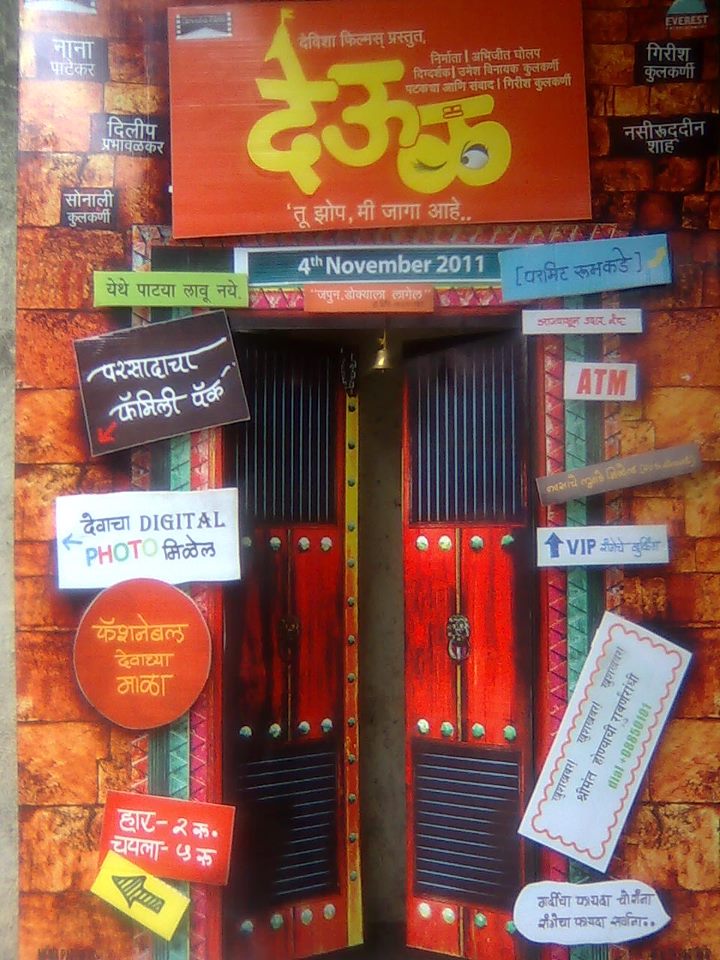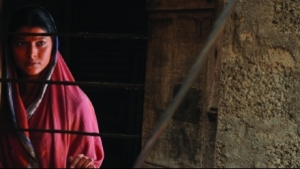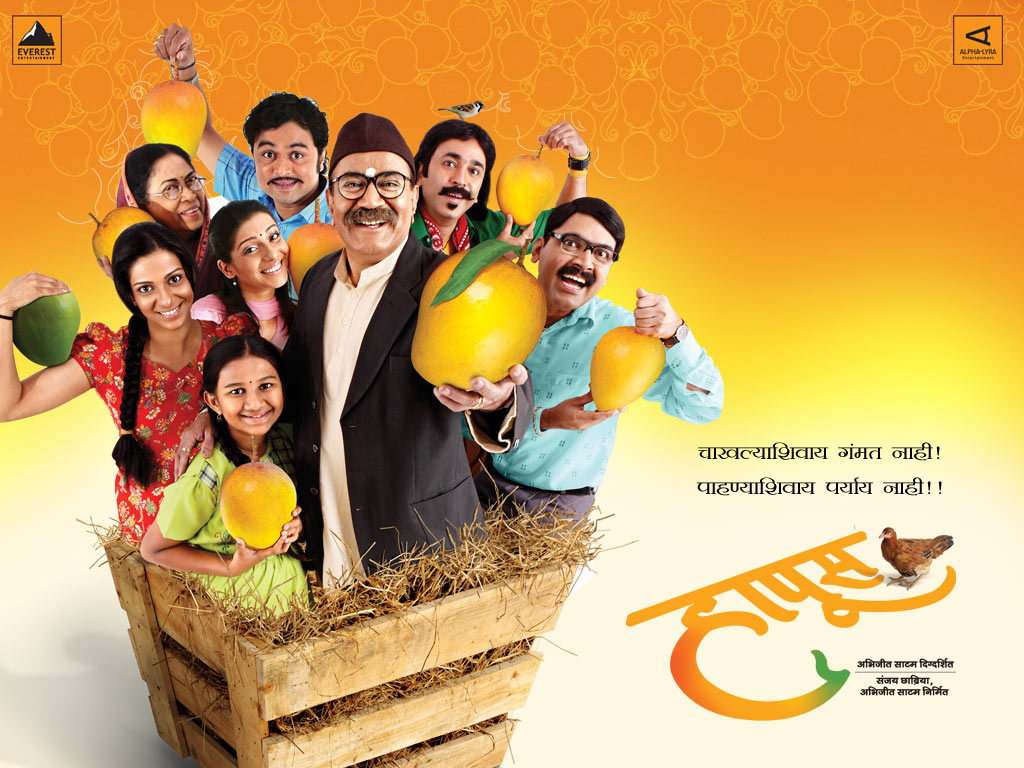Direction: Viju Mane
Production: Ashwamegh Productions
Cast: Sachin Pilgaonkar, Vidyadhar Joshi, Neena Kulkarni, Santosh Juvekar, Sampada Joglekar
Music: Chinar-Mahesh
Rating: * * *
Plot: A traditional bullock-cart race takes place every year in one of the rural areas of Maharashtra. The family that wins the race gets a chance to perform the very important Shiv Puja that year. For years Dhananjay Rao (Sachin Pilgaonkar) is winning the race for Gayatri’s (Neena Kulkarni) family. But once, Dhananjay loses the race due to the crooked method employed by Pratapsingh (Vidyadhar Joshi).
This ensures Dhananjay’s bullock cart meets with an accident which kills few people and injures the bullocks. Devastated by the incident, Dhananjay migrates to the city. He returns after five years and refuses to take part in the race. However, circumstances force him to take part in the last bullock-cart race. This race will decide which family will perform the auspicious puja each and every year. But Dhananjay has to face the mighty Pratapsingh.
Apart from story and direction, Marathi movies have come a long way even in the technical departments like cinematography, sleek editing and background music. These factors are visible in Viju Mane’s Sharyat, which, minus few hiccups, is surely a one-time watch.
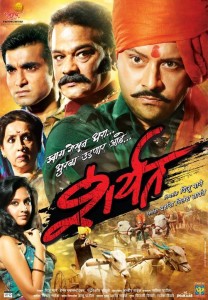 Writers (Mane and Hemant Edlabadkar) bring the first plot point (main point) much sooner in the script. Due to this, there is not much to tell before the interval. Fortunately, the events and the cat and mouse game between the protagonist and the villain keep you interested if not fully gripped. The major twist at the interval point appears promising.
Writers (Mane and Hemant Edlabadkar) bring the first plot point (main point) much sooner in the script. Due to this, there is not much to tell before the interval. Fortunately, the events and the cat and mouse game between the protagonist and the villain keep you interested if not fully gripped. The major twist at the interval point appears promising.
But a lengthy item number at the start of the second half acts as a dampener. Even the romantic song between Santosh Juvekar and Sampada Joglekar halts the proceedings. An unusual fact here is that Juvekar’s character has hardly anything to do with the main plot. Plus, Neena Kulkarni’s cruel act in the penultimate moments doesn’t go well with her character.
Fortunately, the events that follow later in the second half and the climax are laudable. In fact, the bullock-cart race in the climax is wonderfully shot which keeps you at the edge of your seat.
Shabbir Naik’s impressive cinematography and Satish Patil’s sharp editing deserve special mention. There is not much scope for music. ‘Sheela Chya Aaicha Gho’ is the track you take home from Chinar-Mahesh’s compositions.
Sachin Pilgaonkar perfectly gets into the skin of his character. This can be rated as one of his mature serious acts. Vidyadhar Joshi has enacted a similar character few times before but he deserves applause for playing a negative act with perfection. As expected from a respected name like Neena Kulkarni, she gives a mature and sensible act.
Although Santosh Juvekar’s character isn’t related to the story much, it’s a pleasure to see him perform. Sampada Joglekar, who looks naturally beautiful, isn’t bad as his love interest. The actor playing Kulkarni’s husband does well to portray a paralytic patient. The rest of the cast provides good support.
Overall, Sharyat tilts more towards the positive side. At the box-office, the film should garner decent collections before the big Bollywood release Don 2 hits the theatres.
